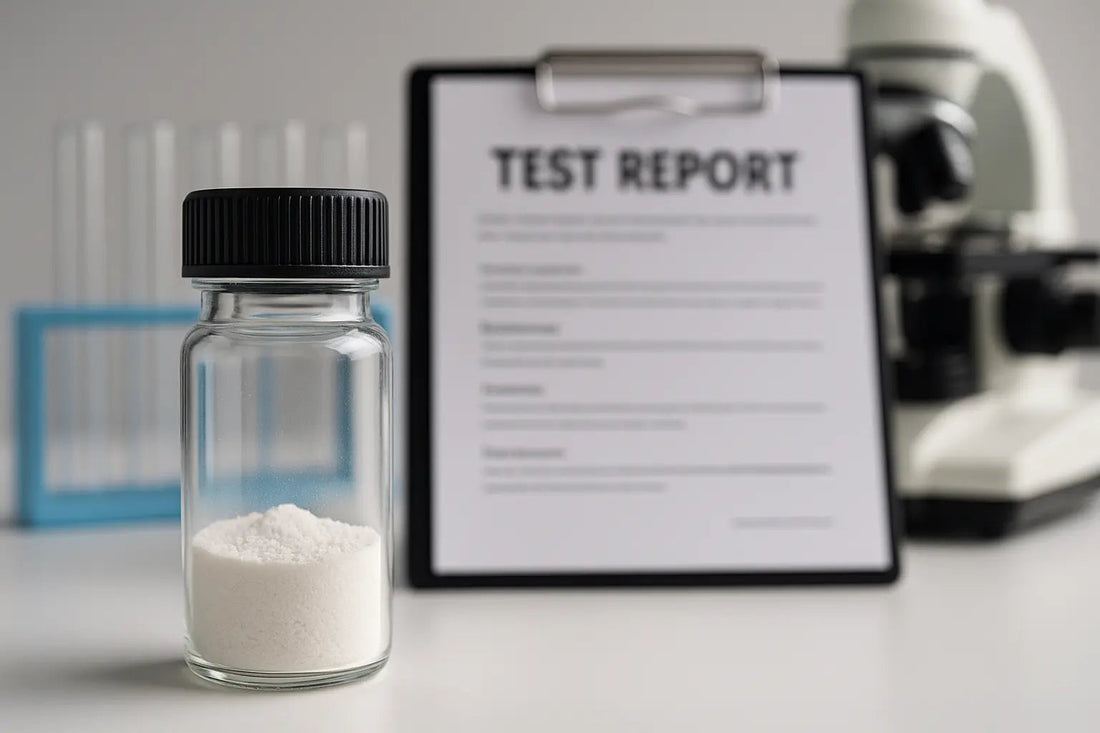
Third Party Tested Peptides: How to Verify Authenticity Before Buying
Share
When considering supplements or research materials, third party tested peptides are essential for ensuring you receive authentic and high-quality products. But how can you be sure that the peptides you buy have truly undergone independent verification? Understanding the process and verification methods behind third party testing can save you from ineffective or unsafe purchases, especially when it comes to research peptides or 3rd party tested collagen peptides. This article will guide you through the key steps to verify peptide authenticity before you make your purchase.
What Are Third Party Tested Peptides?
Definition and Importance
Third party tested peptides refer to peptides that have been analyzed and verified by an independent laboratory outside of the manufacturing facility. This testing is crucial because it validates the peptide’s purity, composition, and potency without bias from the producer. For both researchers and consumers, such verification offers confidence that the product meets stated specifications.
Why Verification Matters
The peptide industry, especially for research peptides and supplements like 3rd party tested collagen peptides, is susceptible to inconsistencies due to substandard manufacturing or contamination. Third party testing helps eliminate these concerns by providing objective proof of quality. Without this, buyers risk investing in ineffective or even harmful products.
How Third Party Testing Works
Testing Procedures
Independent labs use advanced analytical techniques such as High-Performance Liquid Chromatography (HPLC), Mass Spectrometry (MS), and Ultra Performance Liquid Chromatography (UPLC) to measure peptide purity and verify the molecular structure. The tests confirm that the batch adheres to the standards claimed on the label.
Certification and Documentation
After testing, the lab provides a Certificate of Analysis (CoA) which details the purity percentage, molecular weight, and the presence or absence of contaminants. Reputable peptide suppliers make these CoAs easily accessible to buyers to authenticate the product before purchase.
Key Ways to Verify Authenticity Before Buying
Check for a Valid Certificate of Analysis (CoA)
Always request or look for a downloadable CoA from the supplier’s website. A genuine CoA should include batch numbers, testing dates, and the laboratory’s contact information. Beware of generic or missing certificates.
Research the Third Party Laboratory
Look up the external lab that performed the testing to ensure it is accredited and specializes in peptide analysis. An unknown or unaccredited lab could indicate unreliable testing.
- Confirm the lab uses industry-standard testing methods.
- Look for reviews or certifications from recognized bodies.
- Ensure the lab is independent and not affiliated with the peptide manufacturer.
Evaluating Supplier Transparency and Reputation
Supplier Background and Reviews
Buy peptides only from suppliers with established reputations, clear contact information, and transparent sourcing policies. Customer reviews and testimonials can highlight product consistency and customer service quality.
Product Labeling and Claims
Authentic suppliers accurately label their products as “third party tested peptides” or specifically mention 3rd party tested collagen peptides where relevant. They avoid exaggerated claims or vague statements about product quality.
Common Red Flags to Avoid
Absence of Testing Information
If a peptide seller cannot or will not provide a CoA or details about third party testing, it’s a strong sign to avoid purchasing.
Suspiciously Low Prices or Unverified Origins
Unusually low prices can suggest compromised quality. Also, beware of manufacturers that cannot trace raw materials back to accredited facilities, especially if the origins are unknown or overseas without regulation.
Why 3rd Party Tested Collagen Peptides Are Especially Important
Collagen Peptides and Consumer Safety
Collagen peptides, popular for their health and beauty benefits, often come from various animal sources. Third party testing ensures the product is free from contaminants, properly hydrolyzed, and consistent batch-to-batch.
Ensuring Efficacy and Purity
With 3rd party tested collagen peptides, you gain assurance that the molecules are intact in the necessary form for absorption, and free from fillers or additives that can dilute effectiveness or cause allergic reactions.
How to Incorporate Verification in Your Buying Process
Steps to Follow Before Purchase
- Request or download the CoA for the peptide batch you plan to buy.
- Verify the third party lab’s credentials and contact them if necessary.
- Research the supplier’s history, reviews, and customer feedback.
- Compare prices with known reputable sources to identify unrealistic offers.
- Ensure the product label clearly states it is third party tested peptides.
When in Doubt, Ask an Expert
If you’re unsure about the authenticity of a product or the validity of its testing, consult with scientific peers, healthcare professionals, or trusted industry experts before purchasing.
In summary, third party tested peptides offer a necessary layer of quality assurance for both researchers and consumers. By understanding how to verify authenticity—through Certificates of Analysis, reputable laboratories, transparent suppliers, and awareness of red flags—you can confidently purchase peptides that are safe, pure, and effective. Whether you are seeking peptides for research or wellness products like 3rd party tested collagen peptides, always prioritize third party verification. Explore trusted suppliers that provide clear documentation to protect your investment and health.

